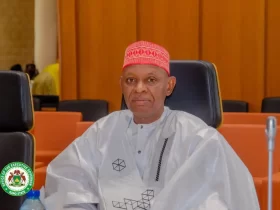Nigeria falls short of the $10 billion annual target for achieving net-zero carbon emissions by 2060, according to a report by the Natural Resources Governance Institute (NRGI) and BudgIT Foundation.
To address the funding gap, the report suggests that the Federal Government explore domestic revenue mobilization, international public finance, and leverage just energy transition partnerships.
During a session to validate a Guidebook on Energy Transition in Abuja, Dr. Orji Ogbonannaya Orji, the Executive Secretary of the Nigeria Extractive Industries Transparency Initiative (NEITI), emphasized the importance of the guidebook. He noted that while Nigeria has a broad energy transition plan, the document lacks detailed contextual explanations. Orji stressed that civil societies have a responsibility to facilitate discussions on the implementation of the policy plan.
Orji stated, “We already see a gap that we need to fill. That gap is on data. How do we provide the requisite data that is needed to drive the energy transition?”
Tengi George-Ikoli, a Senior Officer at the Natural Resource Governance Institute’s Nigeria Program, described the Energy Transition Handbook as a valuable resource for the government, civil society, media, and all stakeholders involved in facilitating a seamless and sustainable energy transition.
Adejoke Akinbode, Head of the Natural Resource Governance & Sustainability Unit at BudgIT Foundation, highlighted that the Guidebook would offer insights gained from engagements with state and non-state actors. These include government, private actors, communities, youth, and women groups, focusing on Nigeria’s energy transition plans, energy access, and key development needs.
Source: All Africa



















Leave a Reply